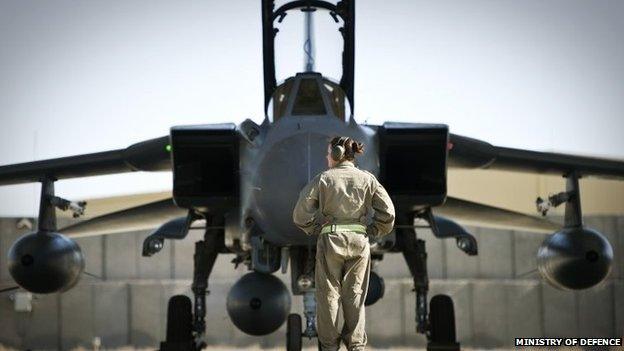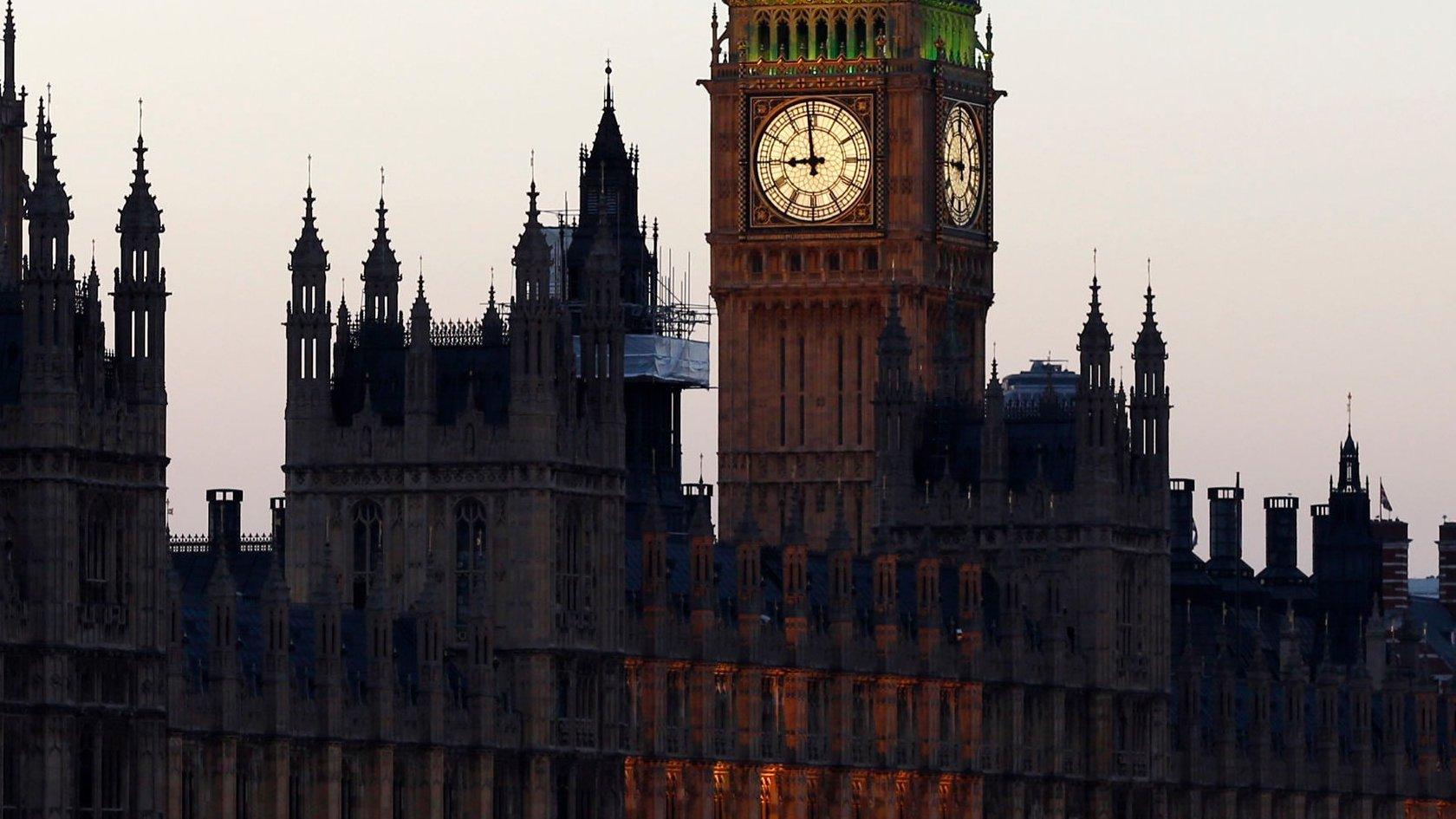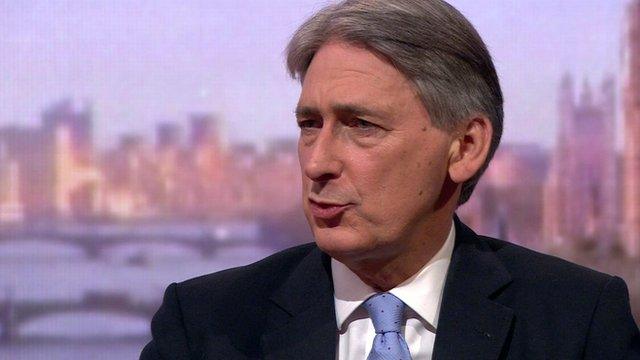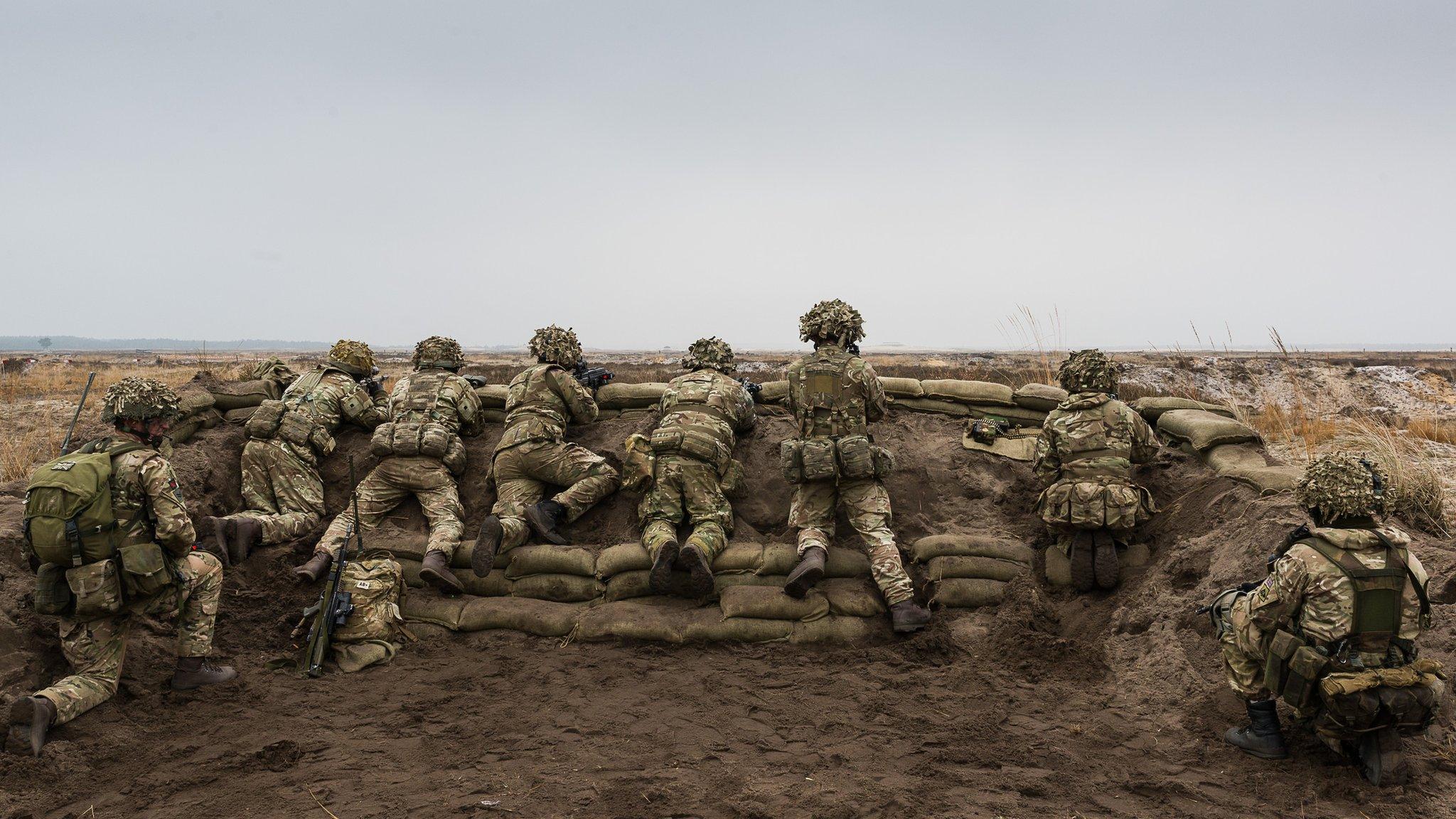David Cameron 'passionate' about armed forces says Philip Hammond
- Published
Philip Hammond: "We are committed to the two per cent target"
There will be no "further cuts to our regular armed forces" under David Cameron's leadership, the foreign secretary has said.
But Philip Hammond said there were "very difficult decisions" on deficit reduction to come after the election.
The government is under pressure to commit to meeting Nato's target of spending at least 2% of GDP on defence beyond 2016.
Mr Hammond said he would not "prejudge" the spending reviews to come.
Russia's actions in Ukraine have increased pressure on Mr Cameron to say he will continue to meet the 2% target, which has been maintained under the coalition, if he is still prime minister after May 7.
MPs are to hold a backbench debate on defence spending on Thursday.
Writing in the Mail on Sunday, external, Conservative MP John Baron said the target should be a "bare minimum" and to fall below it would be a "grave mistake".
The head of the US Army recently said he was "very concerned" about the impact of spending cuts on the UK's armed forces.
Mr Hammond, a former defence secretary, told the BBC's Andrew Marr show: Mr Cameron "is passionate about our armed forces. He has always been absolutely clear that he is not prepared to preside over any further cuts to our regular armed forces."

The government has not committed to spending 2% of GDP on defence in the next Parliament
BBC political correspondent Alan Soady said the defence target was a "very sensitive area", particularly for the Conservatives.
Mr Hammond vowed to protect the "integrity and strength" of the armed forces.
Asked whether he could commit to meeting the 2% target, he added: "I can't tell you what will be in the Conservative manifesto, but you will find out soon enough, and I can't prejudge the outcome of the security and defence review and the spending review that will take place after the next election.
"But David Cameron led the charge on the Nato 2% commitment at the summit in Wales last year."
Research by the European Leadership Network, external suggests that in 2015 only one of the 14 nations examined - Estonia - will meet the 2% target.
While expenditure would increase in Poland, Latvia, Lithuania, the Netherlands, Norway and Romania, none of these would meet the target.
Germany, Italy, Canada, Hungary and Bulgaria would cut their defence spending as would the UK, the network suggested.
Former Lib Dem leader Sir Menzies Campbell called for a cross-party agreement on meeting the target.
Sir Menzies, a member of Parliament's Intelligence and Security Committee, said: "If ever there was a time to put party differences aside on defence, it is now."
Speaking on BBC Radio 4's The World This Weekend, former US Secretary of State Henry Kissinger said the "vast majority" of Nato governments did not have "the capacity to develop a meaningful strategy to deal with a meaningful attack".
He said he felt "melancholy" comparing Britain's defence prowess in Victorian times with today.
"I think the countries of Europe, if they want to play a global strategic role, have to develop forces adequate for this, and not because Americans say so, but because they have to balance their intentions with their capacities," he added.
- Published8 March 2015

- Published8 March 2015

- Published2 March 2015

- Published26 February 2015

- Published3 March 2015
